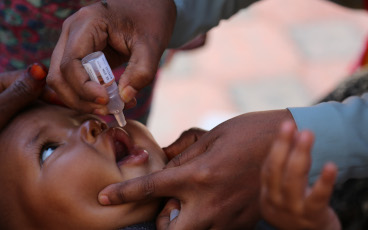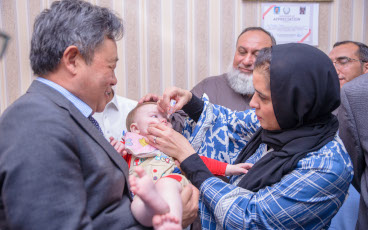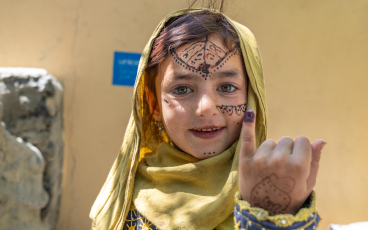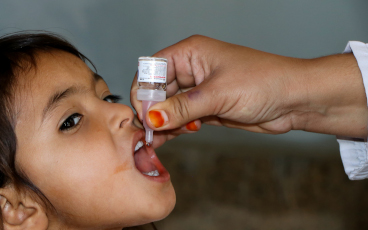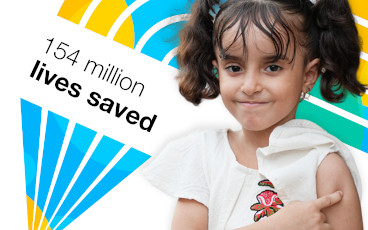Communication is reducing polio outbreak risk in vulnerable countries
Different methods of community engagement help to protect every child with vaccines.
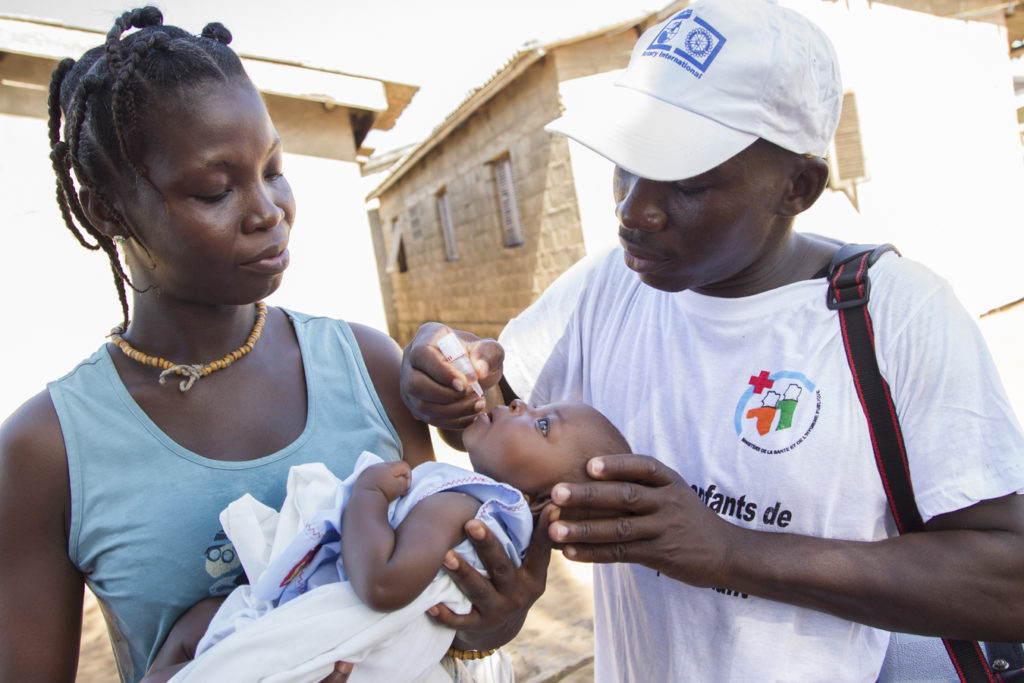
“I was told that if the child was vaccinated against polio, he could one day become a great footballer like Drogba and Yaya Toure…Today, they have not yet become like Drogba and Yaya, but they are in good health.”
– Awa B., mother of five children, Côte d’Ivoire
Today, the countries most vulnerable to poliovirus outbreaks are those where the barriers to effective immunization are most acute. In high-risk countries like the Central African Republic and Côte d’Ivoire, populations are hard to access and persuading communities of the need to vaccinate can be difficult.
For polio workers in these countries, it is important to reduce outbreak risk through strategies that involve local people, and which are receptive to the local surroundings and culture. Not every child will grow up to be a champion footballer, but by persuading parents of the importance of immunization, they can grow up active and healthy, protected from the debilitating effects of polio.
The risk of polio outbreak
The Central African Republic and Côte d’Ivoire are both considered outbreak risk countries due to their difficult political and security situations, weak health-care systems, and regular cross-border population movement.
Geographically close to Nigeria, one of the last three polio endemic countries, the Central African Republic is currently at risk of virus spread from Borno state where there was a poliovirus outbreak in 2016. In 2011, Côte d’Ivoire experienced an outbreak of wild poliovirus type 3, also originating from Nigeria.
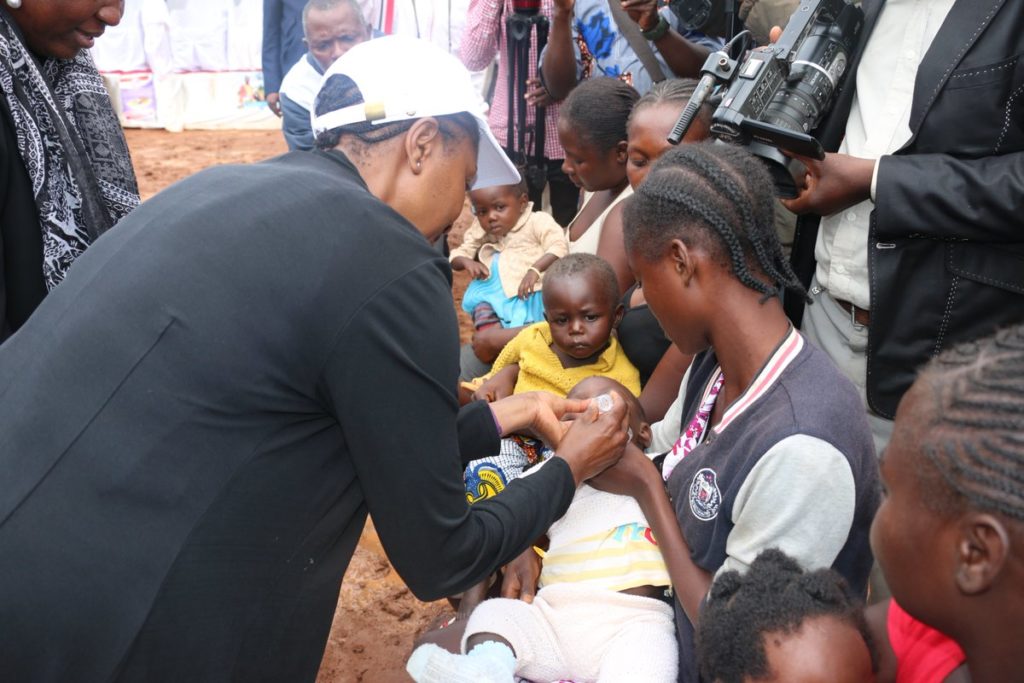
Outbreak prevention is a central part of the strategy to end polio, as the spread of the poliovirus through under-immunized populations could make eradication more of a challenge. In high risk countries where delivering vaccine can be difficult, different methods must be used to comprehensively immunize every last child.
Getting the local community involved
In Côte d’Ivoire, a round of National Polio Vaccination Days officially began on October 28th in Ebimpé, marked by a ceremonial gathering of vaccination partners alongside key members of the local community. Speaking at the event, the Minister of Health and Public Hygiene, Dr Raymonde Goudou Coffie, described the need to vaccinate every last child as a mission for everyone: “Traditional leaders, heads of households and communities need to be involved in this initiative.”
This is a powerful method of engagement – making sure that parents and local leaders, as well as health workers and volunteer vaccinators, are involved in the fight against poliovirus.
No one approach fits all
Vaccinators also understand that no single approach will fit every situation. Instead, the Global Polio Eradication Initiative partners and field workers must work hard to understand how best to communicate the risk of polio outbreaks to different communities.
For instance, to reach parents working in Nana Mambere prefecture of the Central African Republic, local radio station SIRIRI hosted a panel based radio discussion to mark the recent vaccination campaign. Featuring medical professionals and local politicians, the panel addressed community worries around vaccine, urging every parent listening to take their young children to be immunized.
The day before the October campaign in Côte d’Ivoire, an advance team of volunteer vaccinators in Grand-Bassam began vaccinating at the local weekly market. Knowing the routine of local women, they anticipated that there would be some children visiting the market with their mothers who might not be reached later in the week – making this gathering of the community too good an opportunity to miss.
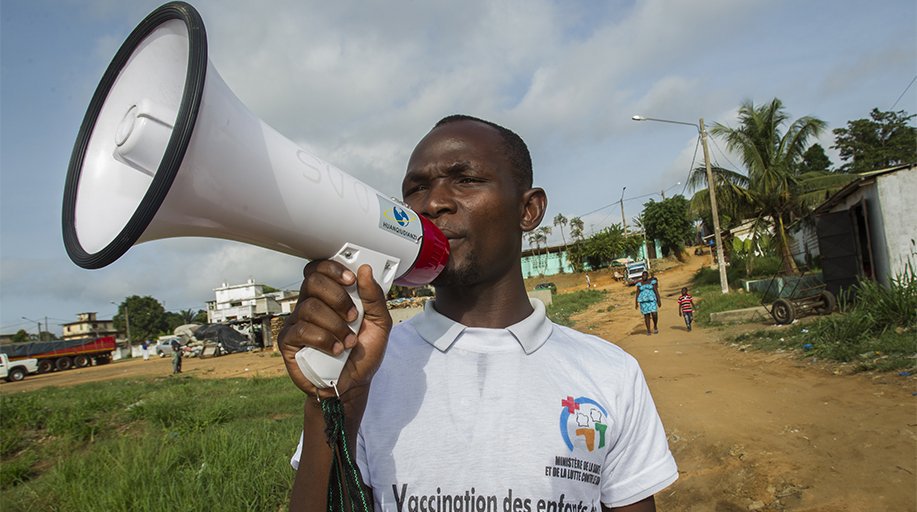
Having an understanding of the communities targeted in campaigns, whether of their worries around vaccination, or even parents’ weekly schedules, is crucial to effectively reduce the risk of a polio outbreak.
Providing broader benefits
In Côte d’Ivoire, Dr Bamba Souleymane, Departmental Director of Health in Grand-Bassam, noted the quantity of different health interventions that his team was attempting to successfully deliver. Alongside the polio vaccine, the volunteers were distributing impregnated mosquito nets, de-worming medication, and vitamins.
Such combined efforts use the GPEI’s well-established infrastructure to deliver a variety of desirable health benefits in communities, not polio vaccine alone. In places where the health infrastructure can be weak, the polio programme’s ability to reach remote children can be a big advantage for many reasons.
For Awa, the dream of her son becoming a champion footballer was a persuasive reason to take him to be vaccinated. For others, receiving different health benefits or hearing information via radio are compelling reasons to vaccinate their children.
Lowering the chance of an outbreak is never a straightforward process, but instead requires understanding parents, children, and communities.
The best vaccinators and campaign planners are able to spot opportunities to keep campaigns relevant, access groups in different ways, and ensure that coverage is sustained.
This way, we can successfully protect every last child.



